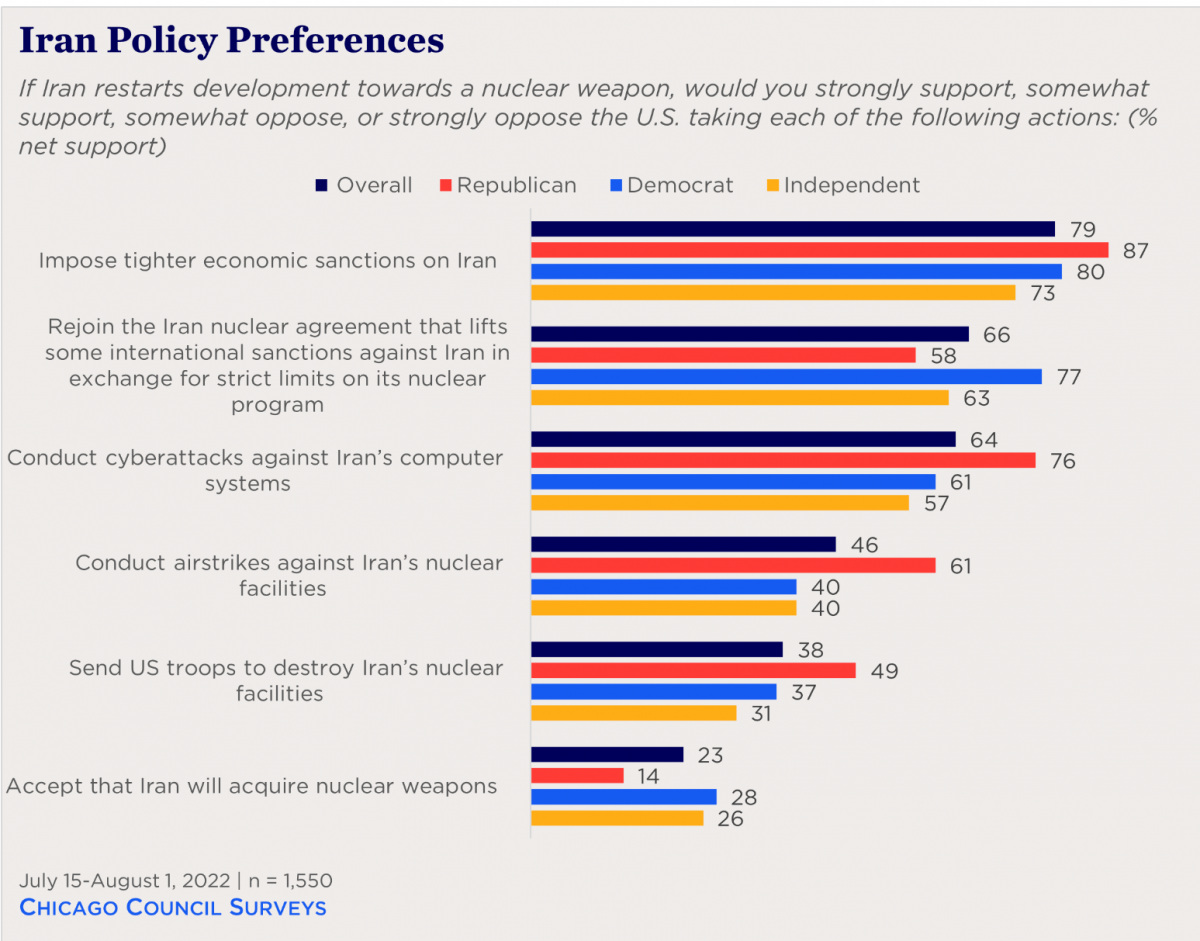EU foreign policy chief Josep Borrell said he does not have “anything more to propose” to break the impasse between the United States and Iran over an agreement to restore the 2015 nuclear deal, known as the Joint Comprehensive Plan of Action (JCPOA).
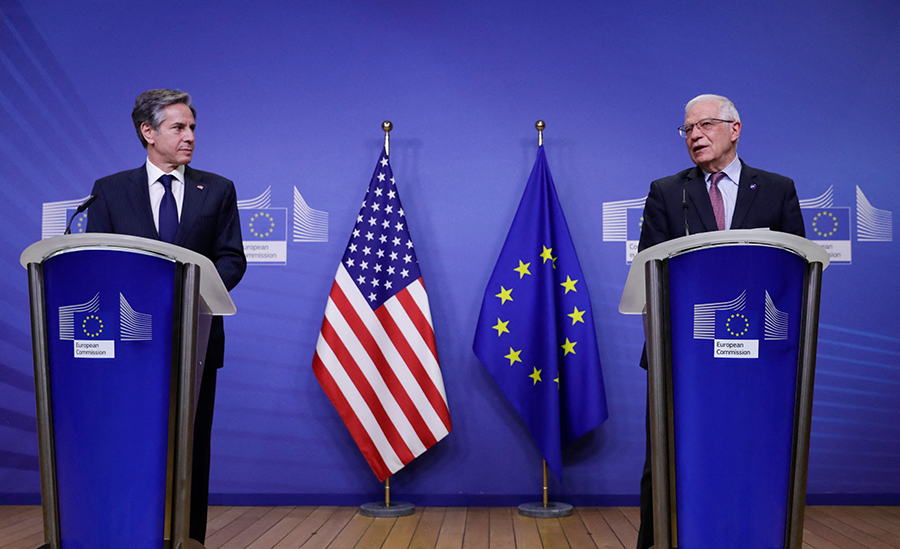 Momentum toward a deal to restore the JCPOA flagged in late August after Iran demanded additional changes to draft accord. Borrell said Sept. 14 that the two sides had been converging toward a deal, but that the “last proposals from the Iranians were not helping.” He expects the stalemate to persist given the “political situation” in the United States, likely referring to the upcoming U.S. elections in November. The Biden administration has not stated that talks will remain on hold until after the elections, but a few days before Borrell’s remarks U.S. Secretary of State Antony Blinken said a deal is “unlikely” in the near term, citing Iran’s unwillingness or inability “to do what is necessary to reach an agreement.”
Momentum toward a deal to restore the JCPOA flagged in late August after Iran demanded additional changes to draft accord. Borrell said Sept. 14 that the two sides had been converging toward a deal, but that the “last proposals from the Iranians were not helping.” He expects the stalemate to persist given the “political situation” in the United States, likely referring to the upcoming U.S. elections in November. The Biden administration has not stated that talks will remain on hold until after the elections, but a few days before Borrell’s remarks U.S. Secretary of State Antony Blinken said a deal is “unlikely” in the near term, citing Iran’s unwillingness or inability “to do what is necessary to reach an agreement.”
European powers party to the JCPOA appear to share the assessment that negotiations have reached an impasse and there is nothing more to put on the table to address Iran's demands. French Foreign Minister Catherine Colonna told reporters during the opening week of the UN General Assembly that “there will not be a better offer" for Iran and that there are no initiatives underway to break the stalemate. France, Germany, and the United Kingdom also said in a joint statement on Sept. 10 that Borrell’s proposal “took us to the limit of our flexibility.”
French President Emmanual Macron met with Iranian President Ebrahim Raisi on the sidelines of the UN to encourage him accept the EU’s proposal for restoring the deal, but the meeting does not appear to have spurred a breakthrough. Raisi used the occasion to criticize the Europeans for acting in an “unconstructive manner” toward restoring the JCPOA and his time in New York to blame the United States for the impasse.
In his Sept. 21 address to the UN, Raisi said that Iran will return to its obligations under the JCPOA if “the interests of the Iranian nation are guaranteed.” In an earlier interview with 60 Minutes, he said that Iran is serious about reaching a “fair deal” and seeks guarantees because “we cannot trust the American because of the behavior we’ve already seen from them,” referring to former President Donald Trump’s withdrawal of the United States from the JCPOA in May 2018 despite Iran’s compliance with the accord.
While Raisi focused on his remarks on demands for guarantees and assurances that Iran will benefit from a restored JCPOA, a key sticking point in negotiations is Tehran’s push for the International Atomic Energy Agency (IAEA) to close its investigation into Iran’s undeclared nuclear materials and activities from the pre-2003 period. Iran has dragged out that investigation and failed to provide technically credible explanations to the IAEA regarding the presence of uranium that agency inspectors found at three undeclared locations in the 2019-2020 period. Borrell originally proposed that Iran and the IAEA try to close the investigation within 60 days after a deal to restore the JCPOA is finalized, at which point, if the agency was satisfied, the other parties to the deal would support close of the investigation at the IAEA Board of Governors.
After refraining from commenting on Borrell’s proposed solution in the Aug. 8 draft, Iran doubled down on its insistence that the investigation be closed more swiftly and added new demands that the IAEA refrain from future investigations into Iran’s nuclear past.
These demands may become a deal breaker if Iran does not soften its position because the EU has little space to negotiate over the IAEA’s investigation. Any perception that the parties to the JCPOA are pressuring the agency to prematurely close the investigation would have negative consequences for the nonproliferation regime and undermine confidence in any future IAEA assessments that Iran’s nuclear program is entirely peaceful. The parties also cannot commit the agency to refrain from future investigations, as the IAEA is also required to determine if Iran’s nuclear declaration is complete and correct and follow up on any evidence of undeclared activities or materials.
U.S. officials have made clear they will not pressure the IAEA to end its investigation, but still believe there may be a path forward to restore the JCPOA. State Department spokesperson Ned Price told reporters in a Sept. 13 press briefing that the Biden administration “provided feedback to the latest Iranian response” but did not provide any details on the U.S. position. He did say that Iran’s recent proposals were “a step backwards in many ways,” but maintained that it is “not too late to conclude a deal.”
The Biden administration continued to express support for reaching a deal to restore the JCPOA after protests broke out in Iran over the brutal death of Mahsa Amini by Iran’s morality police.
U.S. National Security Advisor Jake Sullivan said that pursing diplomacy to “prevent Iran from ever getting a nuclear weapon” will not stop the Biden administration from “pushing back and speaking out on Iran’s brutal repression of its citizens and its women.” “We can and will do both,” Sullivan said.—KELSEY DAVENPORT, director for nonproliferation policy
Iran’s Nuclear Program Continues Expanding
In a Sept. 7 report from the International Atomic Energy Agency (IAEA), the agency raised concerns about its ability to verify Iran’s centrifuge inventory and reported that Iran’s stockpiles of highly enriched uranium continued to grow over the past quarter, as did the number of installed and operating advanced centrifuges.
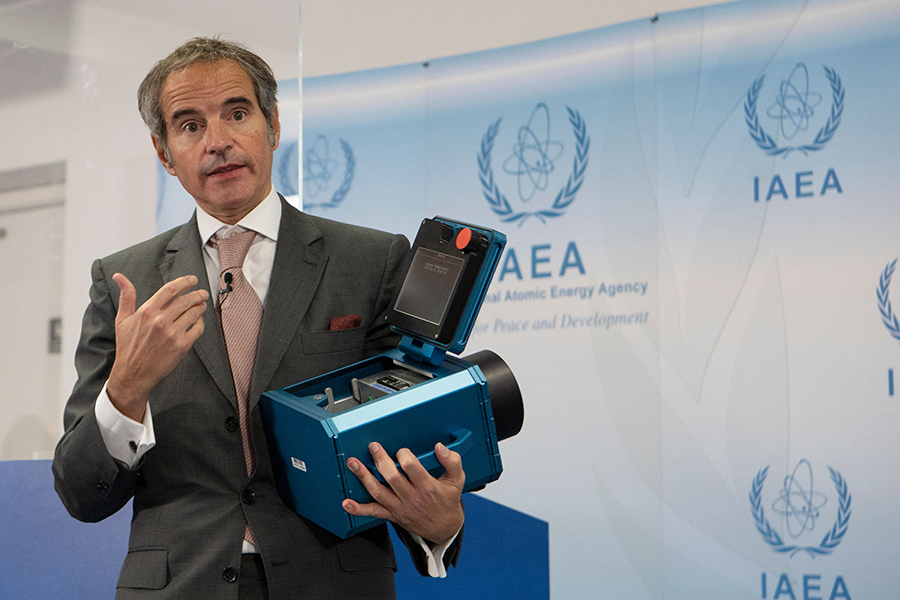 According to the report, the IAEA warned that “considerable challenges would remain to confirm the consistency of Iran’s declared inventory of centrifuges and heavy water,” based on the gaps in monitoring created after Iran disconnected IAEA surveillance cameras in June that were recording activities at certain nuclear facilities. The IAEA said in the report that the challenge in establishing a baseline on centrifuges and heavy water will exist even if Iran cooperates with the IAEA, turns over recordings from the cameras before their disconnection in June 2022, and reapplies safeguards.
According to the report, the IAEA warned that “considerable challenges would remain to confirm the consistency of Iran’s declared inventory of centrifuges and heavy water,” based on the gaps in monitoring created after Iran disconnected IAEA surveillance cameras in June that were recording activities at certain nuclear facilities. The IAEA said in the report that the challenge in establishing a baseline on centrifuges and heavy water will exist even if Iran cooperates with the IAEA, turns over recordings from the cameras before their disconnection in June 2022, and reapplies safeguards.
This uncertainty could complicate IAEA monitoring of Iran’s commitments under a restored JCPOA and make it more difficult for the Biden administration to certify to Congress that the agency can verify Iran’s obligations, as is required by the Iran Nuclear Agreement Review Act.
The report also notes that Iran's nuclear program continues to expand. Iran’s stockpile of uranium enriched to 60 percent grew from 43 kilograms in May to 55.6 kilograms, as of Aug. 21. While Iran could build a nuclear weapon using that quantity of 60 percent enriched uranium it would be unwieldy and inconsistent with Iran’s warhead design work from its pre-2003 nuclear weapons program. If Iran chose to enrich its 60 percent stockpile to 90 percent, the level considered weapons grade, it could do so in less than 10 days. That shortened timeframe, referred to as Iran’s breakout, raises the risk that Tehran could try to produce the necessary material for a bomb between IAEA inspections and then divert it to a covert facility.
Iran’s stockpile of uranium enriched to 20 percent also grew, from 238.4 kilograms in May to 332 kilograms as of Aug. 21. The increase of 93.5 kilograms over the quarter represented an acceleration in Iran’s production of uranium to this level. Iran now has more than enough uranium enriched to 20 percent that, if enriched to weapons grade, would be enough for a bomb.
Iran’s stockpile of uranium enriched up to 5 percent decreased over the quarter, as Tehran continued to use this material as feed to produce highly enriched uranium. The stockpile dropped from 1,056 kilograms in May to 714 kilograms as of Aug. 21, according to the report.
Iran also continues to install and operate advanced centrifuges far beyond what is permitted by the JCPOA. According to the Sept. 7 report, Iran notified the IAEA of its intention to install another six cascades of IR-2 centrifuges at its Natanz Fuel Enrichment Plant and has begun that work. Once installed, this would bring Iran’s total IR-2 centrifuges at that Natanz Fuel Enrichment Plant to 12 cascades, or about 2,000 machines.
The IAEA also confirmed that in late August and early September that Iran began operating the two additional cascades of IR-6 centrifuges that it installed at that Natanz Fuel Enrichment Plant and using them to produce uranium enriched to 5 percent. Iran notified the IAEA that these cascades were completed in early August. In combination with the IR-6 machines installed at the Fordow facility and the pilot enrichment plant at Natanz, this brings Iran to six cascades of IR-6 centrifuges, or about 1,000 machines, which Tehran is required to operate under its December 2020 nuclear law.
Furthermore, Iran notified the IAEA that it plans to change the configuration of its cascade of IR-4 and IR-6 centrifuges at the Natanz pilot facility. These machines are being used to enrich uranium to 60 percent. As Iran explores different configurations for production it gains knowledge about centrifuge performance that cannot be reversed.
Iran, IAEA Resume Talks on Safeguards
Iran and the International Atomic Energy Agency (IAEA) resumed talks on resolving the agency’s investigation into undeclared nuclear materials and activities in Iran, but there is no sign of an imminent breakthrough in the years-long probe. After meeting with Atomic Energy Organization of Iran head Mohammad Eslami to discuss the safeguards investigation, IAEA Director General Rafael Mariano Grossi said “a lot of work lies ahead of us.” Given Iran’s demands that the closure of the investigation be tied to the deal to restore the JCPOA, credible progress on the investigation is less likely so long as negotiations remain stalled (see above for details.)
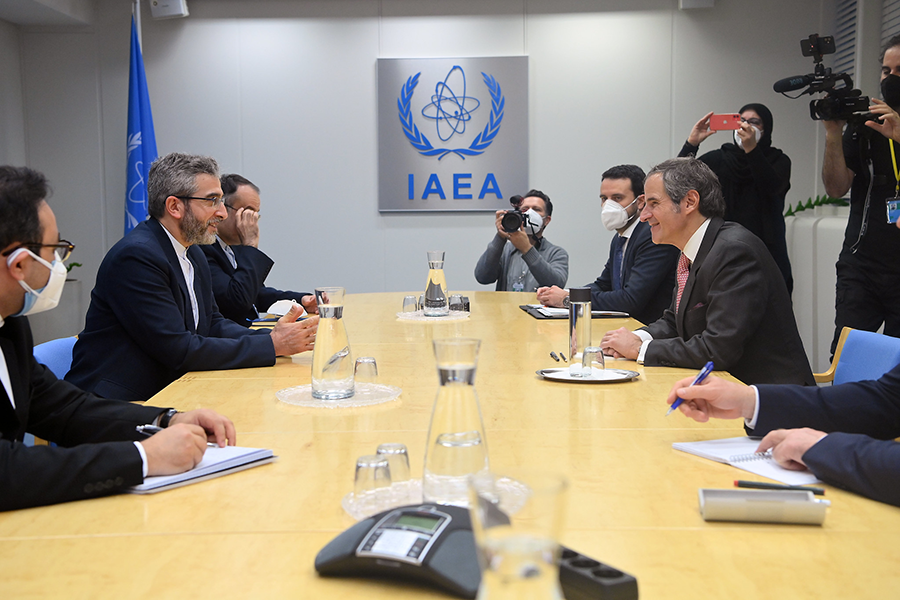 The Sept. 26 meeting took place on the sidelines of the IAEA General Conference in Vienna and marked the first engagement between the agency and Iran on the investigation, which focuses on the presence of uranium detected at three undeclared locations on Iran, since May. In a Sept. 7 report on that investigation, Grossi said the safeguards issues “remain outstanding” as there were “no developments” since the agency’s May 30 report. He reiterated that “until Iran provides technically credible explanations for the presence of uranium” and informs the IAEA about the current location of the material or the equipment that contaminated the sites, the IAEA “will not be able to confirm the correctness and completeness” of Iran’s safeguards declaration. As a result, the IAEA is “not in a position to provide assurance that Iran’s nuclear programme is exclusively peaceful.”
The Sept. 26 meeting took place on the sidelines of the IAEA General Conference in Vienna and marked the first engagement between the agency and Iran on the investigation, which focuses on the presence of uranium detected at three undeclared locations on Iran, since May. In a Sept. 7 report on that investigation, Grossi said the safeguards issues “remain outstanding” as there were “no developments” since the agency’s May 30 report. He reiterated that “until Iran provides technically credible explanations for the presence of uranium” and informs the IAEA about the current location of the material or the equipment that contaminated the sites, the IAEA “will not be able to confirm the correctness and completeness” of Iran’s safeguards declaration. As a result, the IAEA is “not in a position to provide assurance that Iran’s nuclear programme is exclusively peaceful.”
Iranian Foreign Minister Hossein Amirabollahian told Al-Monitor in a Sept. 25 interview that Iran is “ready to provide answers” to the IAEA’s questions. However, he also stated that the allegations are “baseless” and said the IAEA “needs to behave and act technically.” In his Sept. 26 remarks to the IAEA’s General Conference, Eslami also accused the IAEA of failing to act professionally and impartially. He also repeated Iranian claims that the evidence for the IAEA’s investigation was fabricated and that this investigation rehashes issues that were closed in 2015.
The IAEA did close an investigation into the military dimensions of Iran’s nuclear program in 2015, but that does not preclude the agency from future investigations. The IAEA is obligated to follow up on evidence of undeclared nuclear activities and materials.
Grossi also pushed back against allegations that the IAEA has politicized the investigation. In a Sept. 12 news conference he said Iran’s allegations are “nothing new” and that the issue is “very straightforward.” The IAEA is doing what it is supposed to do, he said.
When the IAEA’s Board of Governors met Sept. 12-16 in Vienna a group of states, led by the three European parties to the 2015 nuclear deal (France, Germany, and the United Kingdom) and the United States, issued a statement condemning Iran for failing to meet its safeguards obligations and encouraging it to cooperate with the IAEA. More than 50 states signed on in support of the statement.
Russia’s ambassador to the IAEA, Mikhail Ulyanov, called the statement “very untimely.” Iran denounced the Europeans for acting in manner that was “unconstructive” but did not retaliate as it did in June when the IAEA Board passed a resolution censuring Iran for its failure to cooperate on the safeguards investigation.
In a separate statement to the IAEA Board, the E3 said that Iran’s position on the safeguards investigation and its determination to tie to negotiations to restore the JCPOA “raises serious doubts as to Iran’s intentions and commitment to a successful outcome.” Restoring the JCPOA “can in no way be used to release Iran from legally binding obligations that are essential to the global nonproliferation regime,” the statement said.
Middle East Weighs in on JCPOA at the UN
Leaders from the Middle East used the UN General Assembly to weigh in on efforts to restore the JCPOA. Israeli Prime Minister Yair Lapid used the occasion to reiterate his opposition to the deal, stating on Sept. 22 that the “only way to prevent Iran from getting a nuclear weapon is to put a credible military threat on the table.” Only then should a “longer and stronger” deal be negotiated, he said.
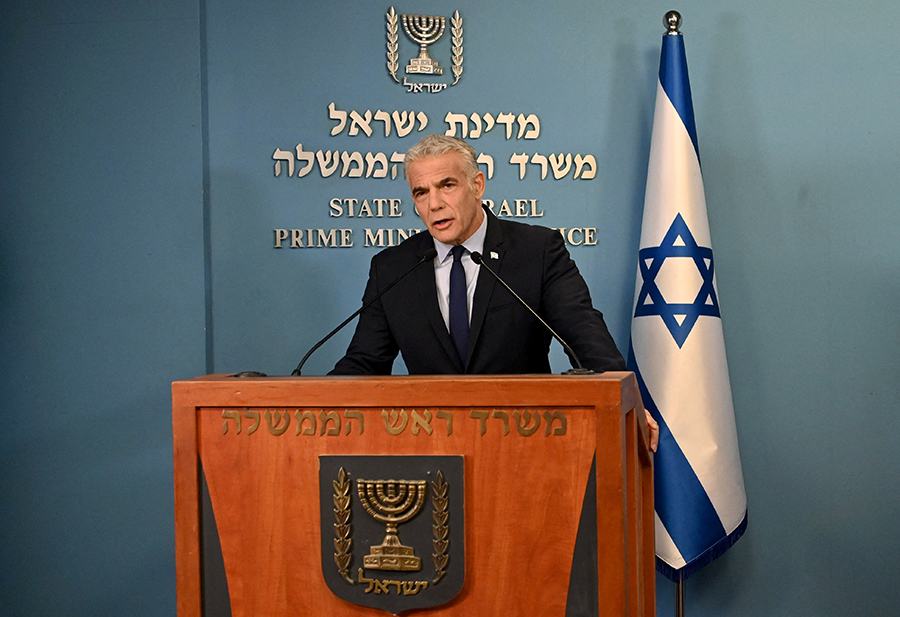 The prior week, David Barnea, the head of Mossad, said that if a deal is reached to restore the JCPOA, it “will not provide immunity from Mossad operations.” He said that “once a deal is signed, there will be no restraint on Iranian terror.”
The prior week, David Barnea, the head of Mossad, said that if a deal is reached to restore the JCPOA, it “will not provide immunity from Mossad operations.” He said that “once a deal is signed, there will be no restraint on Iranian terror.”
While Israel continued to renounce the JCPOA, Saudi Foreign Minister Prince Faisal bin Farhan said on Sept. 23 that while his country has concerns over aspects of the JCPOA, including inspections, a flawed deal is better than no deal.
Qatar’s Emir Sheikh Tamim bin Hamad Al Thani expressed his support for a restored deal during his Sept. 20 address to the UN. He said that "no one has an alternative to such an agreement.” Restoring the JCPOA “would be in the interest of the security and stability of the region, and will open the door to a broader dialogue at the regional security level,” he said.
Poll Shows U.S. Support for JCPOA
Polling conducted by the Chicago Council on Global Affairs found that a majority of Americans support restoring the 2015 nuclear deal. According to the results, 59 percent of Americans support a return to the JCPOA whereas only 36 percent favored staying out the JCPOA and continuing to impose sanctions against Iran. When broken down by party lines, the number of Democrats supporting restoration of the JCPOA was far higher—73 percent—whereas more Republicans—53 percent— favored staying out of the deal and continuing sanctions.
Support for sanctions grew when respondents were asked about U.S. policy preferences if Iran “restarts development towards a nuclear weapon.” In that scenario, 79 percent would strongly or somewhat support tightening economic sanctions on Iran. Sixty-six percent would strongly or somewhat support rejoining the JCPOA. When asked about military options, 46 percent would strongly or somewhat support conducting airstrikes. That dropped to 38 percent when asked about sending in U.S. troops to destroy Iran’s nuclear facilities. Only 23 percent said they would accept that Iran will acquire nuclear weapons.
In Case You Missed It….
- Barbara Slavin, Dancing with the ‘Devil’ in Iran: Negotiations with Tehran are Necessary, Just Security, Sept. 26
- Aaron David Miller, Let’s Be Honest About the Iran Nuclear Deal, Foreign Policy, Sept. 23
- Is Restoring the Iran Nuclear Deal Still Possible? International Crisis Group, Sept. 12

